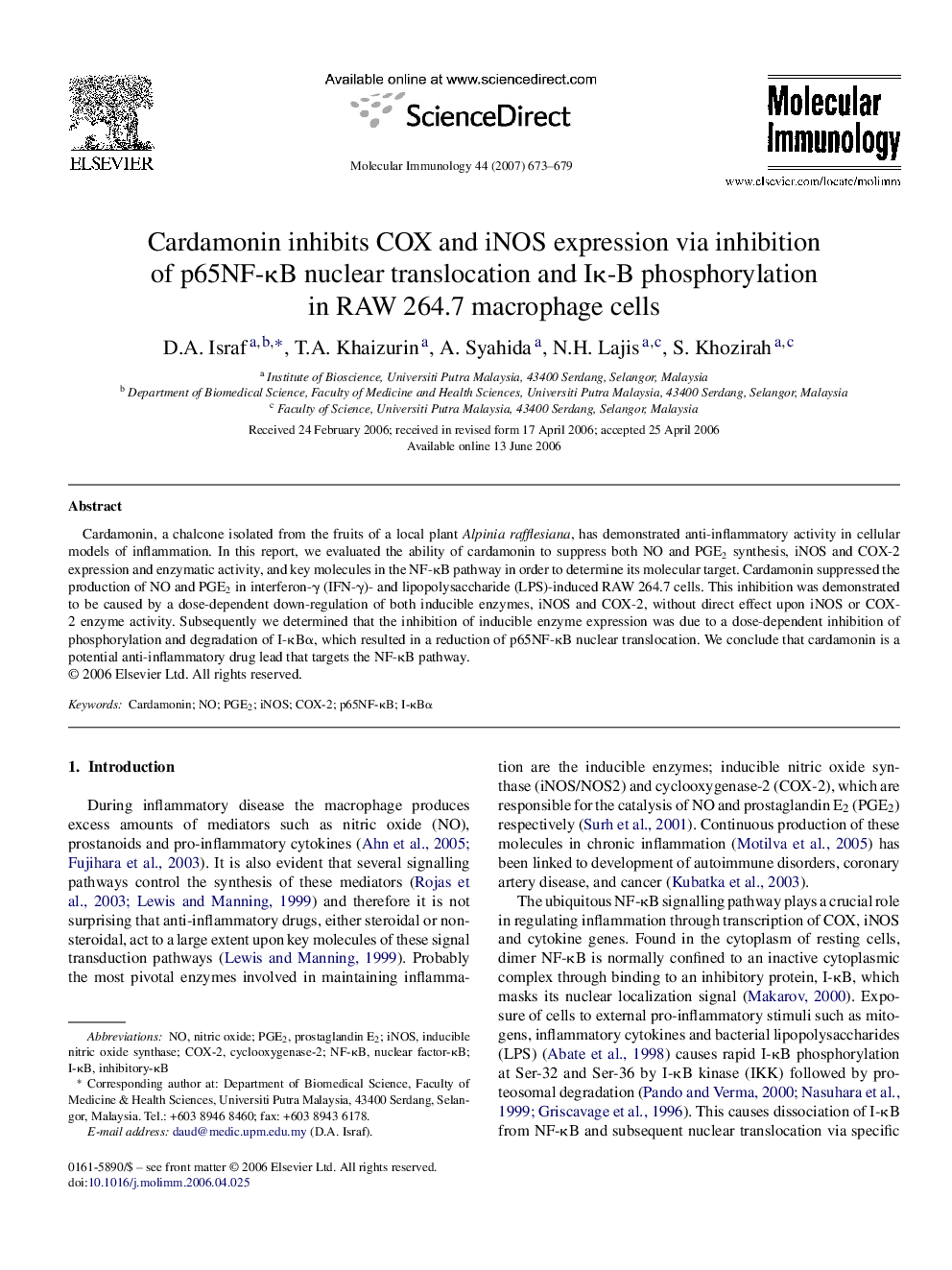| Article ID | Journal | Published Year | Pages | File Type |
|---|---|---|---|---|
| 2833291 | Molecular Immunology | 2007 | 7 Pages |
Cardamonin, a chalcone isolated from the fruits of a local plant Alpinia rafflesiana, has demonstrated anti-inflammatory activity in cellular models of inflammation. In this report, we evaluated the ability of cardamonin to suppress both NO and PGE2 synthesis, iNOS and COX-2 expression and enzymatic activity, and key molecules in the NF-κB pathway in order to determine its molecular target. Cardamonin suppressed the production of NO and PGE2 in interferon-γ (IFN-γ)- and lipopolysaccharide (LPS)-induced RAW 264.7 cells. This inhibition was demonstrated to be caused by a dose-dependent down-regulation of both inducible enzymes, iNOS and COX-2, without direct effect upon iNOS or COX-2 enzyme activity. Subsequently we determined that the inhibition of inducible enzyme expression was due to a dose-dependent inhibition of phosphorylation and degradation of I-κBα, which resulted in a reduction of p65NF-κB nuclear translocation. We conclude that cardamonin is a potential anti-inflammatory drug lead that targets the NF-κB pathway.
